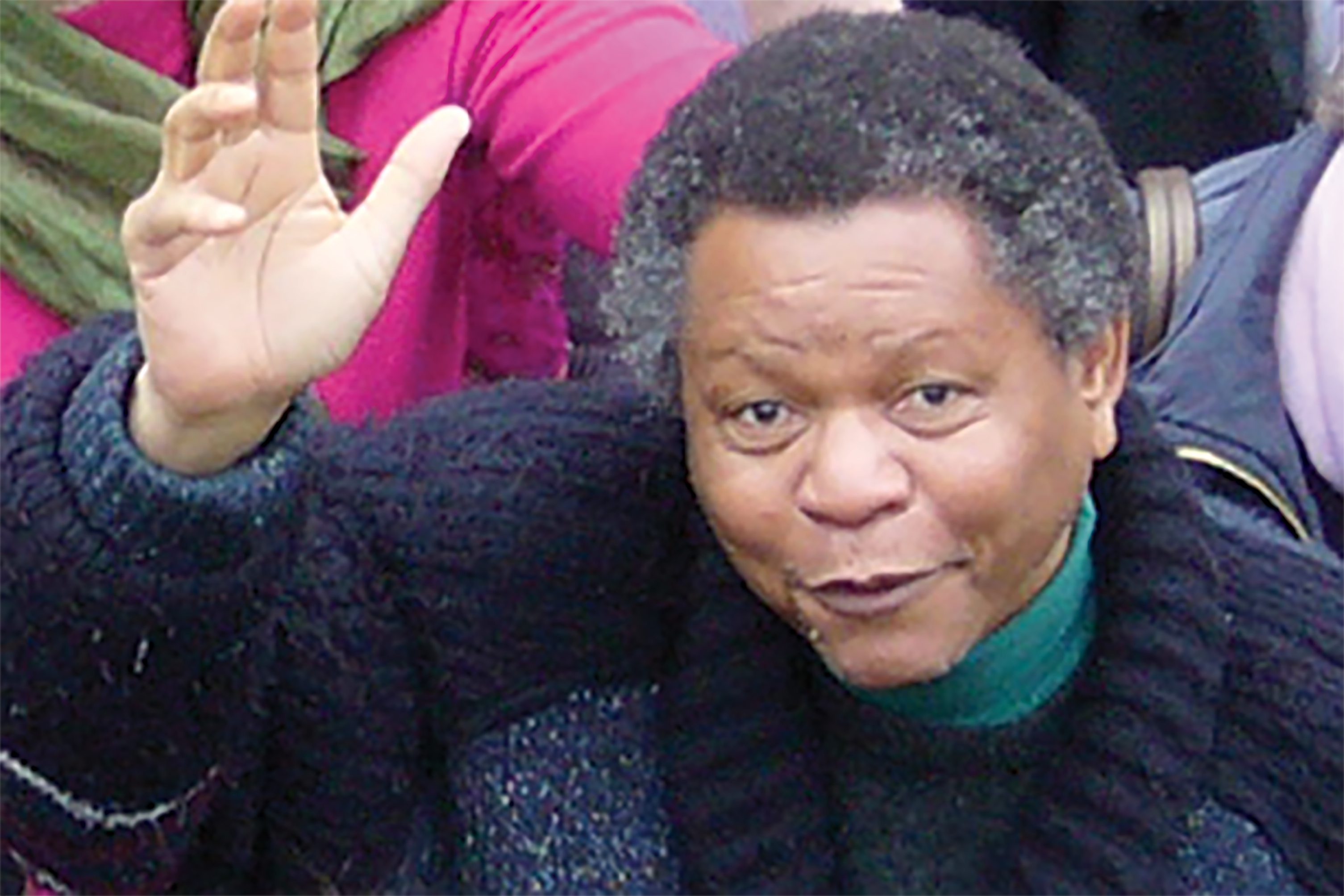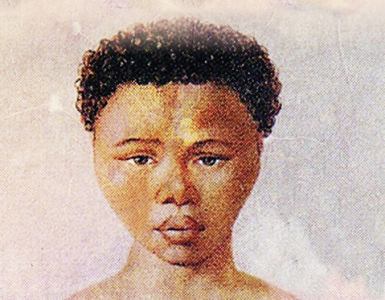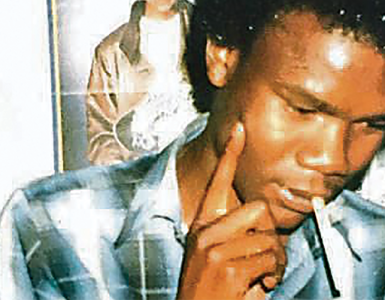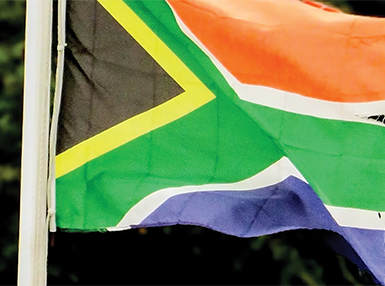IRONY: Wauchope died exactly 12 years today (May 26) in exile unable to come back to his homeland after the apartheid regime passed the baton to hunt and harass him to the democratic government under the guise of rule of law
By Ali Mphaki
Cheek-by-jowl Kliptown that effervescent slum popularly known as the cradle of the Freedom Charter is a body of flowing water known as the Klip River which is also opposite the Dlamini suburb, home of the late and former publicitysecretary of Azapo, the Rev Mpapa George Wauchope, in Soweto.
The stream, which on normal days is concealed by the tall reeds, has a tendency to burst open when there is flooding, but not many in the passing traffic over the bridge connecting the two abodes will be aware that its waters meander all the way to the great Vaal River, some 100 or so kilometres away.
Just below the bridge is where the ashes of Rev George Wauchope were scattered, as per his wishes, a great son of Azania, as he would eloquently describe why South Africa should actually be renamed as such, instead of maintaining its current name which is a mere point on the Atlas.
Bra George, Comrade George, Tower, Houtkop (dunder-head) as one apartheid white cop would later corrupt his surname during a roadblock, died on May 26, 2011 – exactly 12 years today (Friday) – after a long struggle with cancer in Birmingham, England, where he was cremated.
He had skipped bail in February 1989 and fled to Zimbabwe as a political refugee, following a gun related incident during the period of internecine violence between AZAPO and the United Democratic Front (UDF), a painful episode in the history of Struggle in South Africa which saw brother kill brother in the name of ideology. It was during that period when Wauchope’s Dlamini home was twice petrol-bombed, his brother was killed at the hands of suspected UDF acrivists, and together with other family members had endured the wrath of the apartheid police, going in and out of detention.
When the roll for returning exiles was called in 1994, unfortunately Wauchope’s name was on the list unable to join the homecoming since there was a warrant of his arrest hanging over his head.
To the suggestion that he ‘confess his deeds’ to the Truth and Reconciliation Commission (TRC) to enable him to get a pardon so that he could come back home, Wauchope insisted that he had nothing to declare as he had been framed. He maintained that only people who had committed gross human rights violations should submit to the TRC. Some had even suggested that he return to be arrested and clear his name through the courts. His party Azapo made three representations about his case to the three presidents of the new SA, in vain.
The Pontius Pilate treatment of the ruling ANC over Wauchope’s matter could not escape the scrutiny of his comrades who saw it as a ruse – the apartheid regime merely passing the baton to hunt and harass Wauchope to the democratic government under the guise of the rule of law.
“Now that he is gone, we expect them to arrest his ashes when they are brought back home,” Pandelani Nefolovhodwe, a senior member of the party throwing a jibe at the ANC. In exile Wauchope trained for the ministry in Zimbabwe and went on to become the Dean of Studies at the Bishop Gaul Anglican Theological College in Harare.
During his stay in Harare he completed his theological studies, and was ordained as a priest in the Anglican Church, ministering to Anglicans in both Zimbabwe and Botswana. But most back home will remember Wauchope as the former leader of the Black People’s Convention who played a pivotal role in the student uprising of 1976.
I still have to come across a BC exponent who could meticulously trace the etymological development of the name Azania like Wauchope. Persuasive, eloquent, smart, well-read as exemplified with this except from his seminal work (read magnum opus) Azania = The Land of the Black People:
Rev Wauchope writes: “There often exists an undeclared state of war among people involved in the struggle for liberation as between those who support and those who are against the use of the name Azania as an alternative name for a liberated South Africa. This is because the debate concerns much more than a name: it involves everything that we are fighting for; it concerns the very nature of the society we seek to build”. He adds: “Azania is both a historical and a political myth. But myths are not lies. They are an outline of reality. And a liberation movement can certainly use myths in order to unite the oppressed to serve as a rallying point”,
Indeed, history will record Wauchope actively championed the cultural boycott of the 70s and early 80s to the extent of leading protests against the O’Jays, Ray Charles and others. Through his organisation AZAPO, Black people in South Africa regained their collective dignity and self-pride. Very little, if any at all, would be said in the mainstream media about Wauchope’s death anniversary.
The people who own the ink consider his death not newsworthy. Like it was in 2011 , as one Azapo activist noted; “When he died there was no moment of silence in his honour in Parliament. The South African flag did not‘fly at half-mast. There was no provincial or state funeral in recognition of his contribution and sacrifices.
There will be no posthumous honour conferred upon him. No streets, buildings or places will be named after him. Yet his memory will forever remain planted in the hearts of millions of ordinary people of this country. His ashes will serve as manure to fertilise the soil so that the poor will survive.”

































